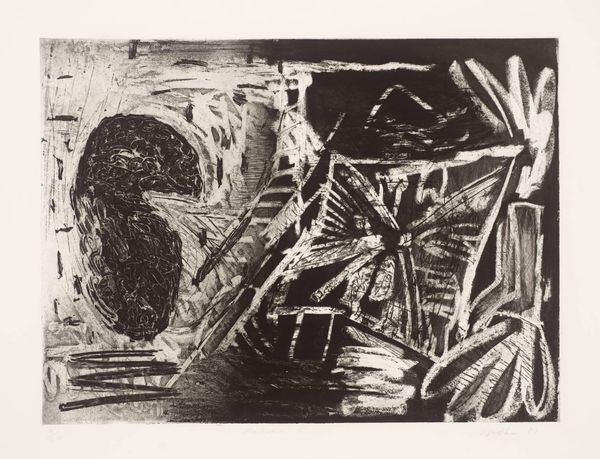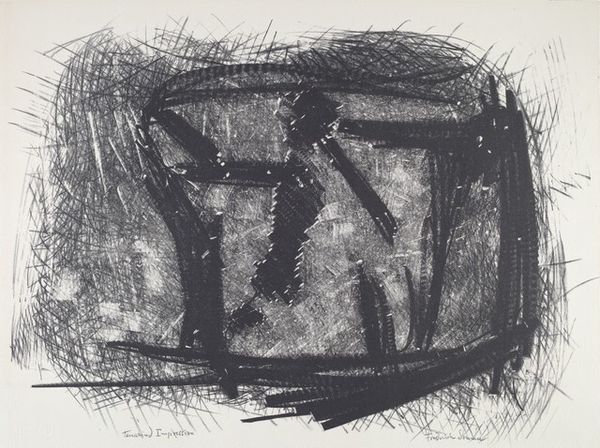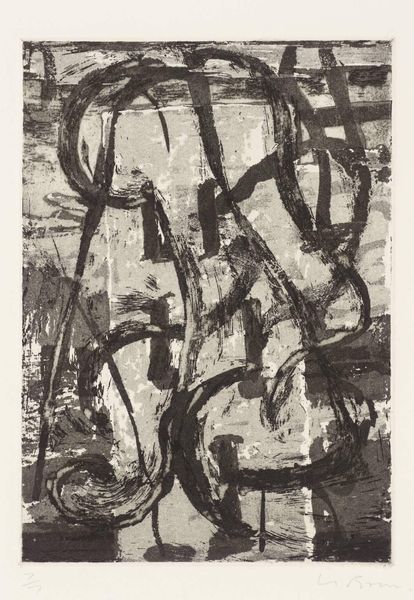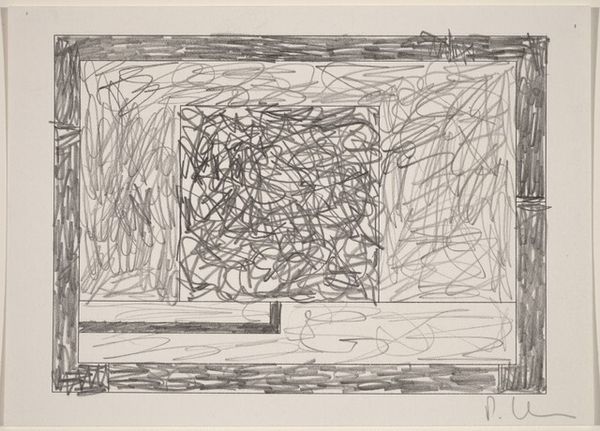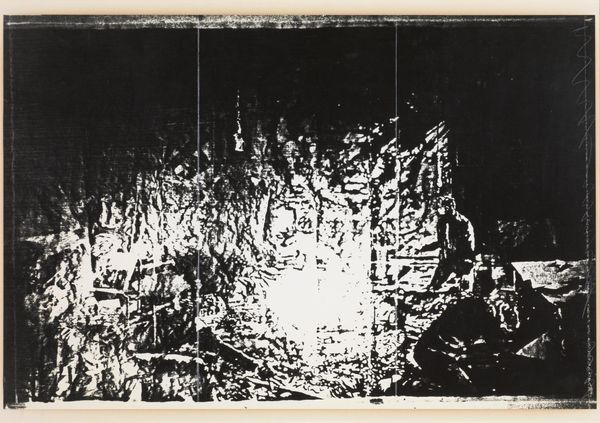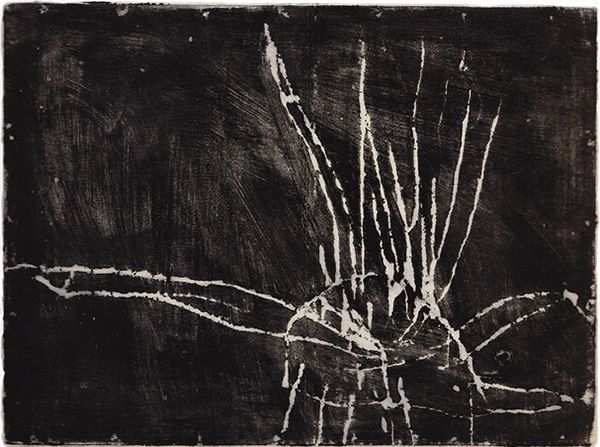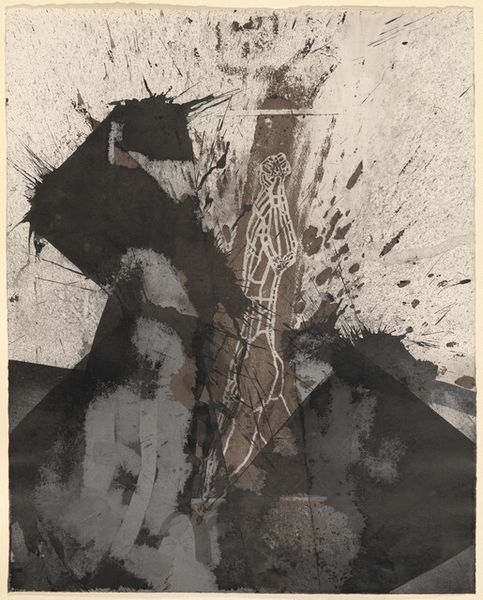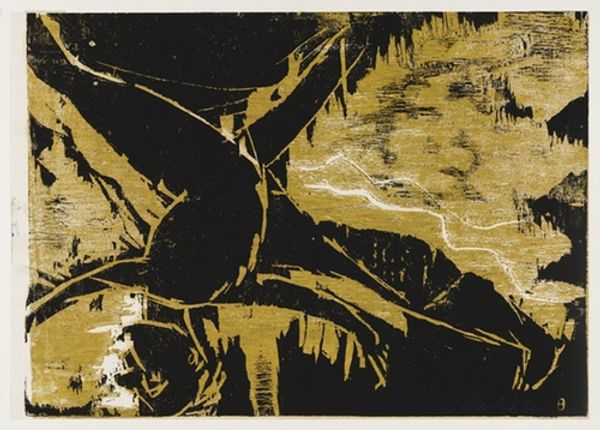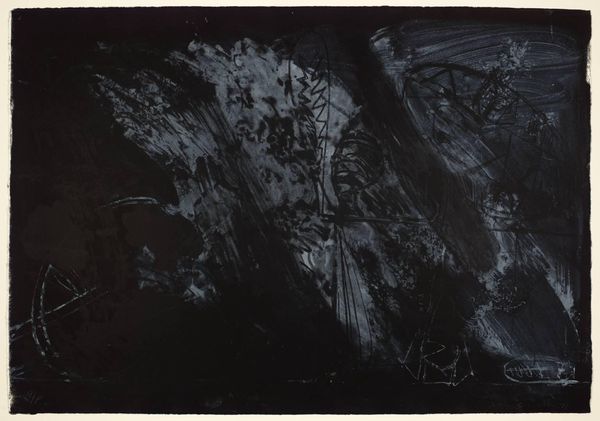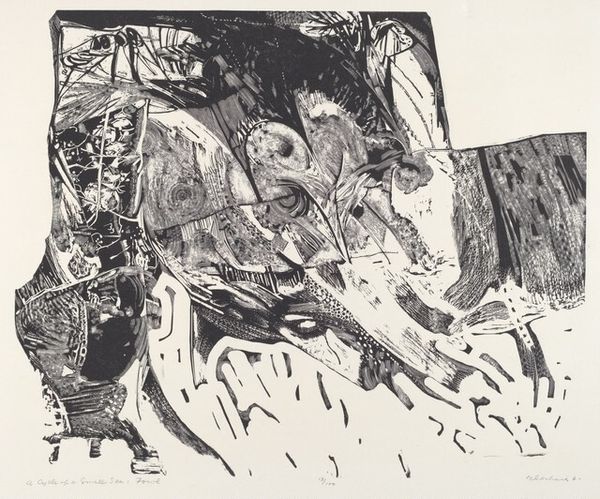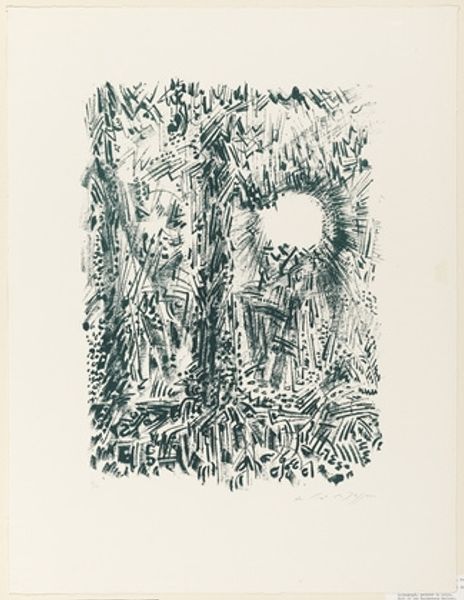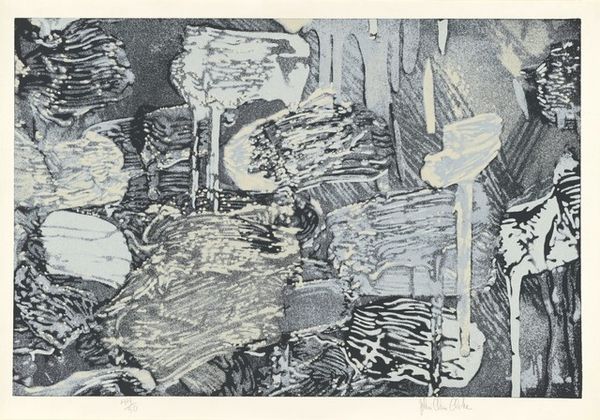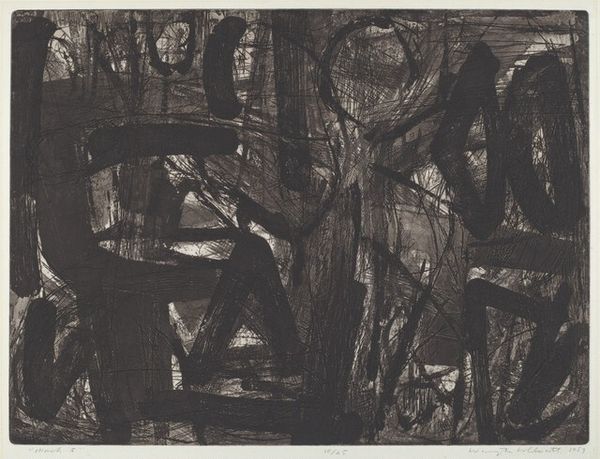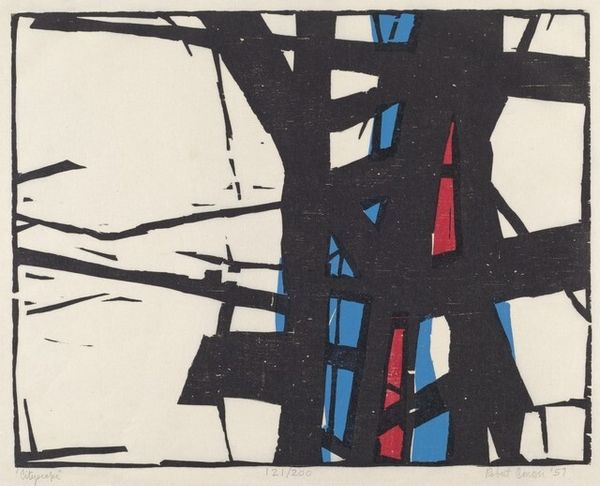
matter-painting, collage, print, linocut, etching, paper, gestural-painting, graphite, frottage
#
abstract-expressionism
#
matter-painting
#
collage
# print
#
linocut
#
etching
#
paper
#
gestural-painting
#
abstraction
#
graphite
#
frottage
#
monochrome
Copyright: National Gallery of Art: CC0 1.0
Curator: Here we have an untitled piece by Glen Alps, created in 1961. It combines collage and printmaking techniques, including linocut and etching, on paper. Editor: My first impression is that this artwork has a really tactile quality. You can almost feel the textures, the different surfaces layered on top of each other. It also feels a little like looking at the fragments of something ancient, wouldn't you agree? Curator: Absolutely. The collage element, paired with the printmaking, creates a complex visual language. Notice how Alps uses both positive and negative space to construct the composition. The abstract form in the center seems to teeter between meaning and pure form, almost like some ritualistic device. Editor: Looking at the process, the labor that went into creating this piece, intrigues me. It feels like Alps is consciously embracing chance through techniques like frottage, which creates unpredictable results, almost surrendering some degree of artistic control. Also, paper becomes a crucial element. Curator: Indeed. Consider the period in which it was made. Abstract Expressionism was at its peak, and artists were intensely interested in exploring the unconscious, the raw emotion beneath the surface. It seems that this central abstract piece embodies chaos or the idea of breaking structures and it makes one recall familiar anxieties. Editor: And despite its abstract nature, there’s something deeply human about it. I wonder about the role that manual labor holds within this context. After all, Glen Alps was experimenting and printing during the climax of postwar industrialization. Curator: Well, on this note, the artwork also offers insights into the symbolic potential of abstract form. Editor: I think I’ll have to mull that one over. Thank you for your perspective. Curator: Thank you! Hopefully, you can discover much more about art by visiting us again.
Comments
No comments
Be the first to comment and join the conversation on the ultimate creative platform.
